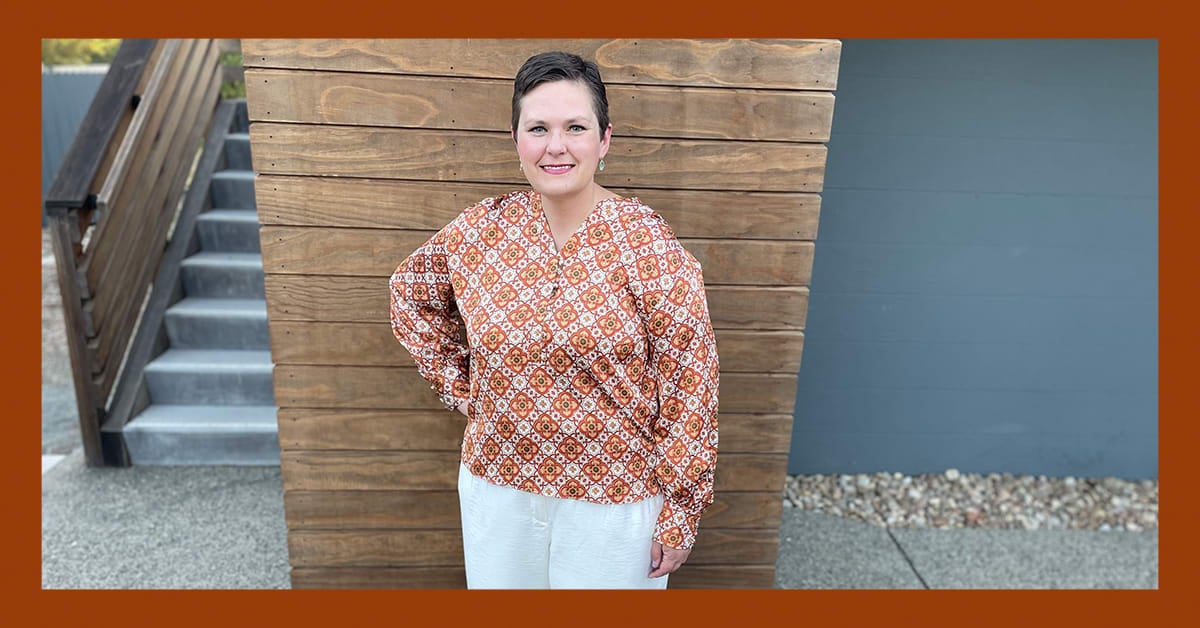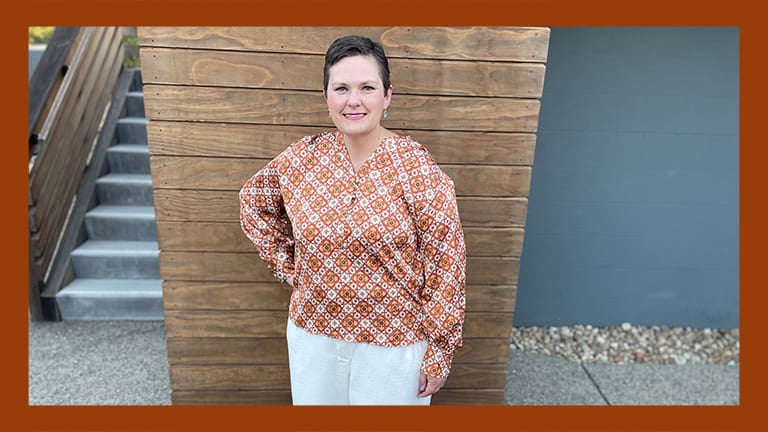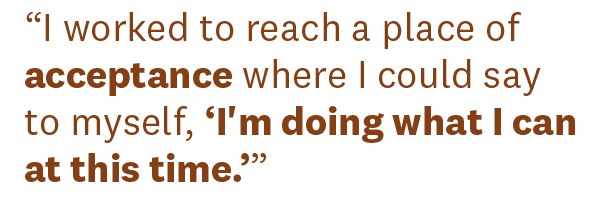“Surviving Breast Cancer Means Putting My Health First From Now On”


For me, the diagnosis came with my very first mammogram, right when I turned 40. The news was a shock; I couldn’t even feel the lump under my nipple. Follow-up testing showed that I had stage IIIA lobular cancer, which meant my medical team had to move quickly to save my life. I underwent a lumpectomy, followed by rounds of chemotherapy and radiation. Nine months later, I was cancer-free. And my life had changed in profound ways.

My strange new normal: After you finish your chemo and radiation sessions, you ring the bell, and you’re sort of let loose in the wild. Most of your medical team moves on, and some people in your life may relate to you differently. For me, all this change was anxiety-inducing.
I ended up joining an amazing local support group that guides survivors through a three-month “reentry plan” for living a healthy life after cancer. Our meetings included activities such as yoga, meditation, and nutrition classes. We also shared our personal stories. As my hair began to grow back, I connected with a foundation that provides sessions with a stylist and ended up getting a short pixie cut that I’ve kept to this day. All these forms of support made the transitional period so much more manageable.
How my feelings about weight have shifted: As a breast cancer survivor, you tend to hear a lot about weight. And that can feel scary, because while research has shown a correlation between increased weight and recurrence, you may not have the energy you once did for physical activity. Your body’s been through so much, and long-term cancer-fighting medications can have side effects that leave you achy and tired.
I worked to reach a place of acceptance where I could say to myself, “I'm doing what I can at this time, and if the weight doesn’t come off right now, that’s OK.” I’m an Unlimited Workshops + Digital member at WW, and it’s been really good to hear this reinforced in my Workshops. On days when I’m not up to running—an activity I’ve enjoyed for years—I meet up with a friend and take a walk instead. That counts! Any step I can take in that direction is going to be good for me, mentally and physically.
Why my post-cancer plan changed: Originally, my long-term care strategy involved staying on two prescribed medications for 10 years. I was on track with that until my doctor alerted me to research showing that some younger breast cancer survivors like me may have a lower risk of recurrence when they have their ovaries removed or suppressed.
From the very beginning of my cancer journey, my mindset was that I would endure whatever treatment offered the best chance of good health and long-term survival. I should also note that my husband and I have three children; growing our family wasn’t a concern at that point. I took my doctor’s recommendation seriously, sought a second opinion, and did my own research. Ultimately, the decision was clear: I chose to have my ovaries removed in summer 2020 and am happy to say I have remained healthy since.

The commitment I’m making to myself: After my Workshop a couple of weeks ago, I reflected on how busy my week was. On that particular morning, I had been too rushed to pack a lunch and ended up grabbing whatever free food was in my work lounge. That was an important reminder: I must continue making my health my number one priority. Without that, I can't take care of my kids; I can't succeed at work; I can’t enjoy life. Supporting my health is what makes everything else possible.
---
Related articles
• Observing Breast Cancer Awareness Month
• What Healthy Eating Means After Breast Cancer
• Is a Spa Your Key to Self-Care?